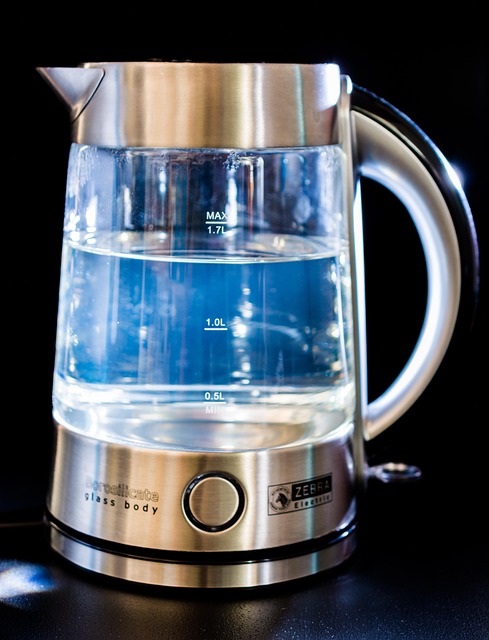Water heaters require regular attention; recognizing signs of aging is crucial for safety and efficiency. Unusual noises, uneven heat distribution, prolonged heating times, leaks, and temperature fluctuations indicate potential issues. Excessive rusting, corrosion, drops in water temp, frequent repairs, and higher energy bills also signal the need for a new heater. Addressing these signs promptly prevents hazards, ensures consistent hot water, and optimizes energy performance.
Are you tired of dealing with cold showers or inconsistent water temperature? Recognizing the signs that your water heater needs replacing is crucial for maintaining a comfortable and efficient home. This guide will help you identify common water heater issues, understand when replacement is necessary, and make an informed decision between repair and a fresh model, focusing on cost, time, energy efficiency, and safety. Spotting these indicators early can save you from unexpected breakdowns and ensure your home stays comfortable all year round.
- Assessing Common Water Heater Issues
- – Identifying signs of age and wear
- – Frequent temperature fluctuations
Assessing Common Water Heater Issues

Water heaters are essential appliances in any home, but like all machinery, they have a lifespan and can develop issues over time. Recognizing when your water heater needs repair or is beyond repair is crucial to avoid unexpected breakdowns and ensure a continuous hot water supply. Several common signs indicate that it’s time for a new water heater:
One of the first indicators is unusual noises coming from the heater, such as banging or rumbling sounds. These could be caused by sediment buildup, which can lead to reduced heating efficiency and potential damage. Another sign is an uneven heat distribution, resulting in cold spots in the water. If your water heater is taking longer than usual to heat up or if you notice a significant drop in water temperature quickly, it might be struggling to maintain a consistent temperature, suggesting potential issues with its heating elements or thermostats. Leaks and frequent repairs are also strong indicators that your water heater is reaching the end of its useful life.
– Identifying signs of age and wear

If your water heater is starting to show its age, it’s crucial to recognize the signs early on. One of the most obvious indicators is excessive rusting or corrosion on the tank and heating elements. Over time, these components can degrade, leading to leaks and potentially hazardous situations. Another sign to watch for is a significant drop in water temperature, especially if you’ve noticed a decrease in your shower’s hot water duration.
Moreover, frequent repair calls for minor issues might suggest that your water heater is reaching the end of its lifespan. Heaters that are older than 10-15 years often struggle to maintain efficiency, resulting in higher energy bills. If you hear unusual noises coming from the tank or notice an unpleasant odor, these could be further signs you need a new water heater—it might be time for a replacement to avoid potential safety risks and ensure consistent hot water supply.
– Frequent temperature fluctuations

Many homeowners often wonder when it’s time to repair or replace their water heaters. One prominent sign that it might be time for an upgrade is frequent temperature fluctuations in your hot water supply. If you’ve noticed that the water suddenly gets scalding hot before quickly turning cold, or if there are consistent variations in temperature throughout the day, these could indicate a problem with your water heater’s thermostat or heating element. Such unpredictable changes not only signal potential safety hazards but also suggest that your water heater may be nearing the end of its lifespan.
When a water heater struggles to maintain a stable temperature, it can lead to inefficient heating and increased energy bills. Moreover, frequent fluctuations can put you at risk for accidental scalding or freezing, depending on the season. If these issues persist despite basic troubleshooting, such as adjusting the thermostat settings or flushing the system, it’s wise to consider whether a new water heater might be the more lasting solution.
When deciding between water heater repair and replacement, it’s crucial to recognize the signs you need a new one. If your water heater is consistently exhibiting age-related issues like frequent temperature fluctuations or showing clear signs of wear and tear, it might be time for an upgrade. While repairs can extend the life of an older heater, replacing it offers long-term benefits, ensuring consistent hot water supply and preventing potential safety hazards. Trust your instincts; if your current heater is giving you more trouble than it’s worth, exploring new options could be the best course of action.
